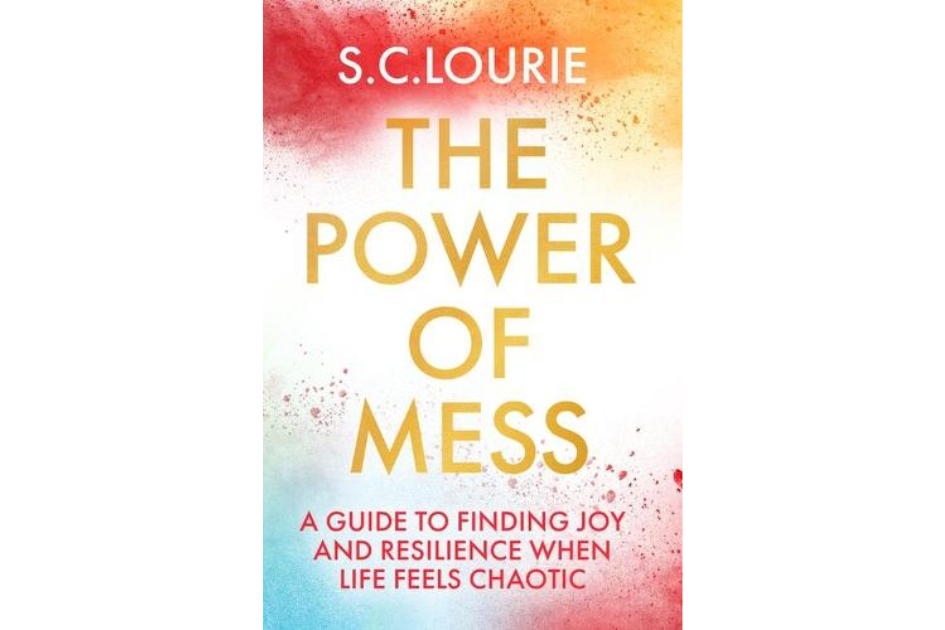Interview with Samantha Lourie, author of The Power of Mess

At the end of April, I held a little get-together at No 17 Dickens Yard at which I met the very lovely local author, poet and prolific journaler, Samantha Lourie.
In her enlightening book, The Power of Mess: A Guide to Finding Joy and Resilience When Life Feels Chaotic, Samantha offers a transformative perspective on dealing with life's inevitable chaos. Through her own deeply personal experiences and years of guiding others in journaling and self-love, Lourie encourages us to embrace the messy aspects of life as opportunities for growth and self-discovery. By owning our stories and viewing our lives as epic journeys filled with both trials and triumphs, she asserts that we can develop resilience and a quiet assurance that we will be okay.
I'm very excited to be giving away 3 copies of the book - head to Instagram to find out how you can get your hands on a copy!

I was lucky enough to interview the very wonderful Samantha and she shared her insights on navigating life's chaos, beginning the journey to self-discovery, and overcoming common challenges faced in her workshops.
In "The Power of Mess," you emphasise embracing life's chaotic moments. Can you share a personal experience where accepting messiness led to a significant breakthrough or positive change in your life?
My entire life has been a chaotic mess, interwoven with magical moments and events. The most transformational event in my life occurred about eight years ago when I had a miscarriage. This was the first experience I couldn't just brush off or laugh away. It forced me to confront my emotions head-on, without the option to stay busy and avoid them. This brutal experience required me to be fully present and to accept it in order to move forward.
By diving into my grief, I processed a lot of darker feelings and emerged feeling reborn, more connected to my authentic self, and deeply aware of the gift of life. This change enhanced things that were dear to me. I stopped people-pleasing and allowed myself the space and grace to heal. I became more compassionate towards myself and my body.
This experience also strengthened my relationships and improved my ability to handle difficult situations. For example, around the anniversary of my miscarriage, my six-year-old daughter, Kika, needed surgery to remove a growth on her face. Although I was an emotional wreck, we got through it. After the surgery, Kika became stronger and happier, and our relationship deepened.
Through these experiences, I learned that life's messiness is filled with magic and beauty. We need to loosen our grip on control and understand that while we can control some things, others are beyond our control. The key is how we manage our own emotions. We must recognise our inner strength and the possibility within us to keep going, no matter how messy life gets. Allowing ourselves to feel our emotions is crucial in navigating and appreciating the chaos of life.
Your book suggests that working through life's mess can lead to discovering deeper versions of ourselves. How do you recommend someone begin this journey, especially if they feel overwhelmed by their current situation?
Feeling overwhelmed often leads to paralysis, a state where it feels impossible to move forward. The first step in beginning the journey through life's mess is learning how to pull yourself out of this shutdown. It's essential to develop the skill of feeling your emotions without letting them shut you down.
Start by allowing yourself to make mistakes and understand that you don’t need to have all the answers immediately. Practice pausing and taking a step back. Allow yourself to breathe and focus on the art of breathing. Many of us live in a state of holding our breath, so listen to your body and meditate on your breath, ensuring that your exhale is longer than your inhale. This helps to calm your nervous system and bring clarity.
Reframe and re-conceptualise your perspective. Changing your approach can significantly alter how you handle overwhelming situations. Instead of relying on broad affirmations that might feel out of touch with reality, use language that bridges the gap between your current struggles and the possibility of improvement. Phrases like "Maybe this time isn’t going to be the end of the world" or "Maybe I will be OK" create a more realistic and manageable outlook.
Incorporating "What if," "Maybe," and "Might" into your self-talk integrates all parts of you, making you feel more involved and capable. This language helps you see a route to the other side of your difficulties, making the journey through life's mess feel less daunting and more achievable.
You've been running journaling workshops and self-love courses for several years. What are some of the most common challenges participants face, and how does your approach help them navigate these difficulties?
One of the most common challenges participants face in my journaling workshops and self-love courses is a struggle with feelings of worthiness and consistency. Many people find it hard to dedicate themselves to journaling regularly and to recognise their own value and achievements.
My approach helps them navigate these difficulties by offering a sense of worthiness through journaling. I emphasise dedication and commitment, encouraging participants to be consistent in their journaling practice, even though it doesn’t yield results overnight. We celebrate little steps and everyday achievements, recognising that these ordinary moments are food for our hearts and that we are doing great every day.
I guide participants to begin their journals with their ‘origin’ stories, highlighting how much they’ve overcome and achieved. This helps them find their voice and celebrate their journey, often leading to realisations like “I’ve done that” or “I’ve achieved that.” By shifting the focus from current demands to past accomplishments, they learn to honour their stories, which immediately fosters a sense of worthiness and the belief that they deserve to be here.
Additionally, I encourage participants to start doing things that make them light up inside. It’s important to sometimes take a break from intense emotions and find solace in activities like listening to music or watching comedies. I also help them identify what doesn’t make them feel good and explore the opposite of those feelings as a strategy for moving forward.
Through these practices, participants can grow their self-worth and navigate their challenges with a renewed perspective and a stronger sense of self.
